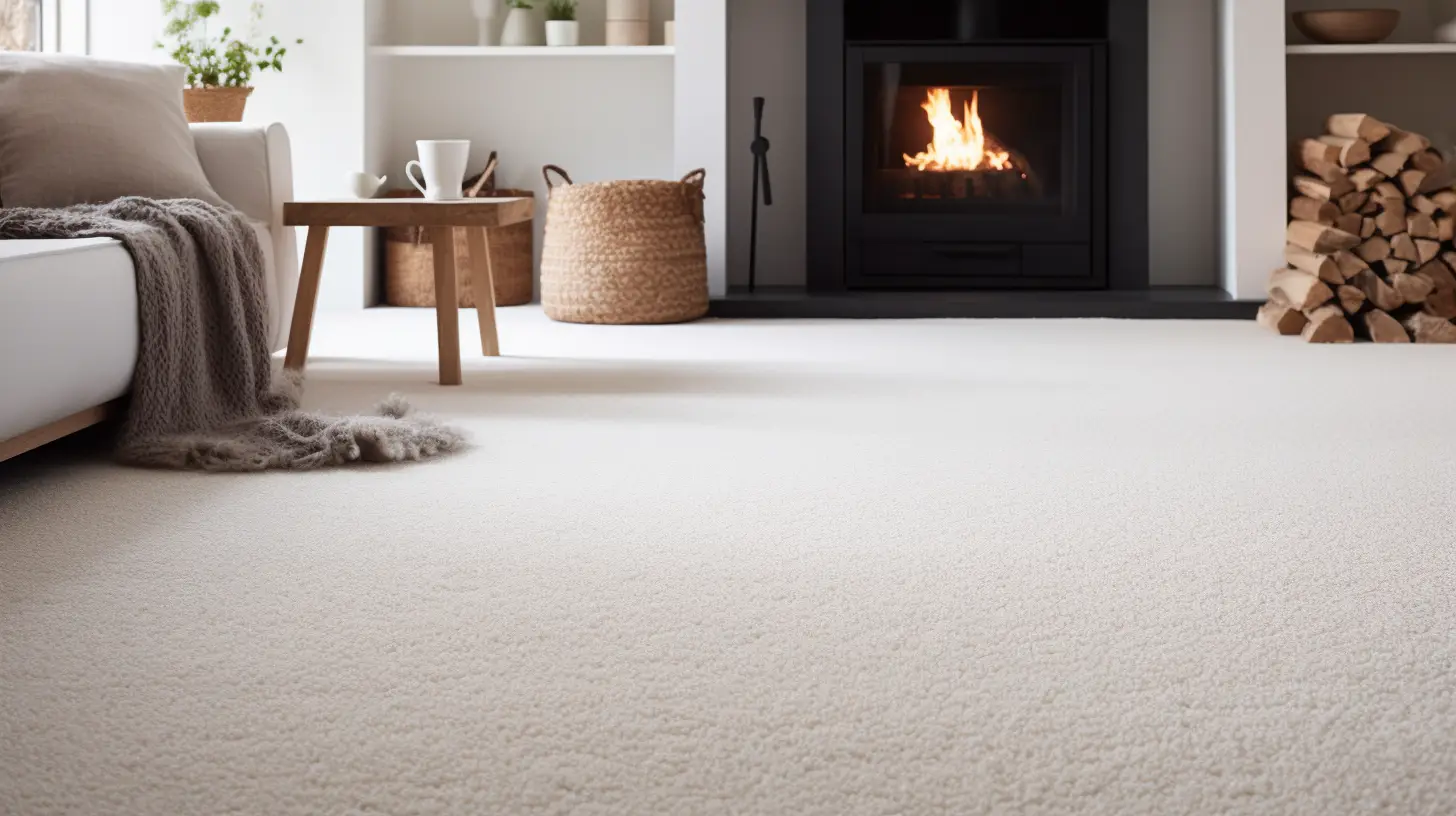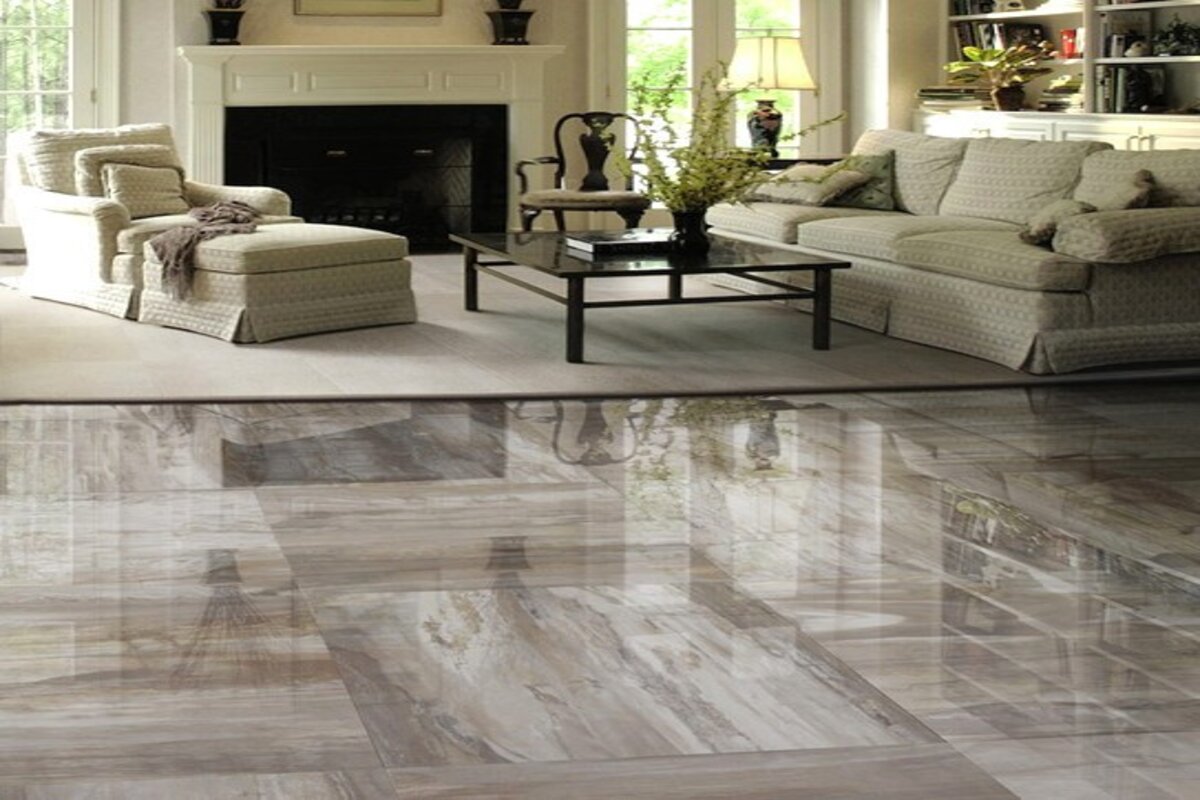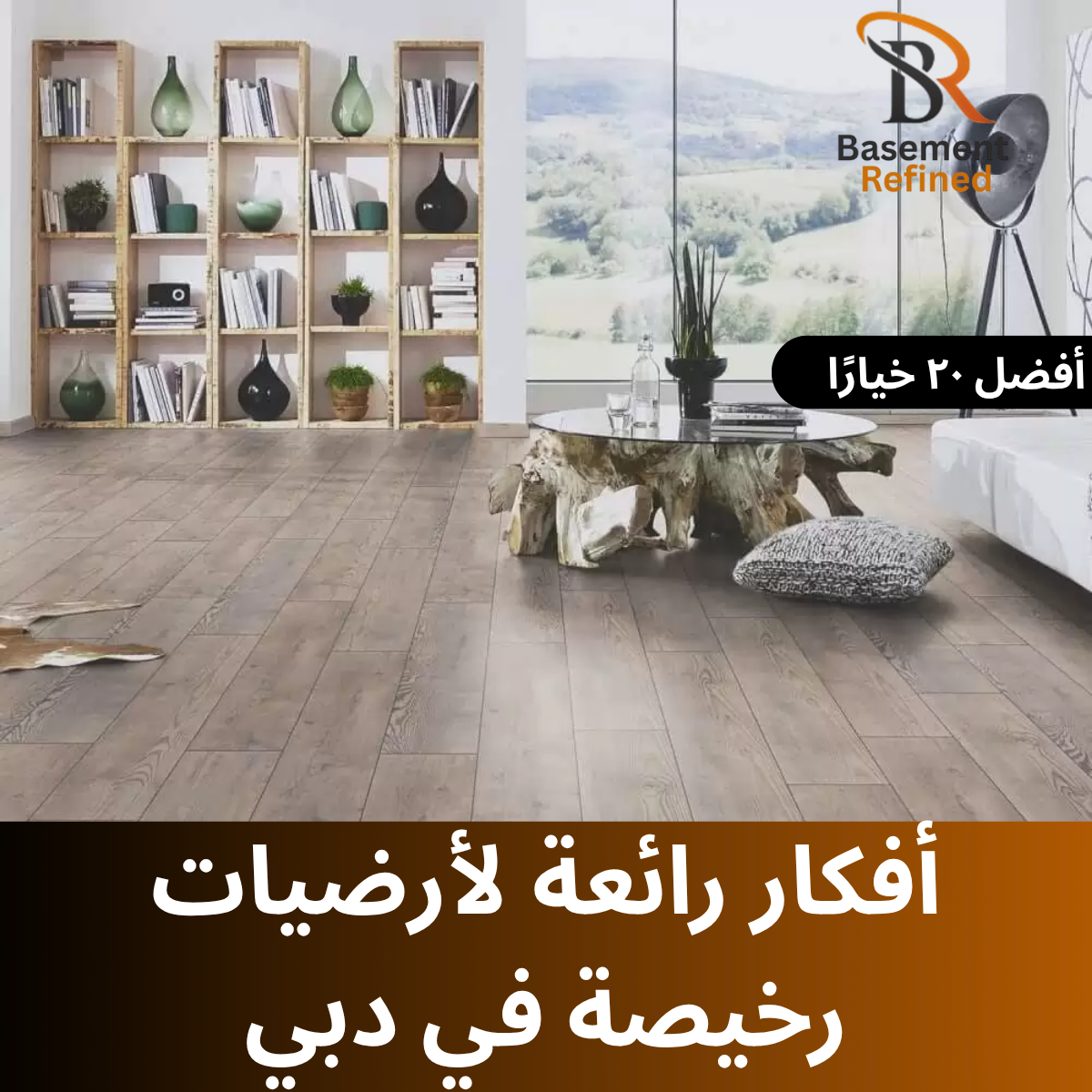Opening Hook
Imagine this: you’ve just purchased that elegant villa in Dubai’s Palm Jumeirah, and you’re excited to convert the lower level into a stunning entertainment lounge. You lift the plastic sheeting and lay eyes on the cold, grey slab beneath. You wonder: What’s the best way to proceed with flooring over concrete basement that will both look luxurious and survive Dubai’s humid climate?
That exact question — how to install flooring over concrete basement in a setting like Dubai — is more complex than it seems, and one misstep can lead to buckled planks, trapped moisture and hidden mold. Whether you’re a homeowner, contractor or interior-designer working in Dubai, this article will serve as your friendly, expert-guide to making the right choice.
Audience Focus
This article is tailored for homeowners, interior designers and renovation contractors in Dubai — especially those working with villas and properties that include a basement level. If you’ve got a space beneath grade (or near-grade) with a concrete slab and you’re asking “what’s the best flooring for a concrete basement here in Dubai?”, you’ll find what you need.
We’ll use examples relevant to Dubai’s climate (humid, occasional flooding from heavy rains, high DEW point conditions) and typical construction (concrete slabs, high-end finishes, luxury tastes). If you’re based in Dubai or planning a basement-flooring project in the UAE region, this piece speaks right to you.
Why Basement Flooring Requires Attention in Dubai
Installing flooring over a concrete basement slab is much more than picking the prettiest tile or plank. In a place like Dubai, the climate and construction mean specific challenges:

- Moisture and vapor risk: Concrete is porous; moisture and vapor can come up through the slab or condense on it if the slab is cooler than the ambient air. According to building science, “Basement floors may appear to be dry but only because ground moisture passing through the slab is evaporating into the interior air space.”
- Thermal and humidity factors: Dubai’s high outdoor humidity (and interior cooling) means that the slab may stay relatively cool, while interior air has a high dew point — condensation or moisture migration are real risks.
- Finish expectations: In Dubai homes, aesthetics and luxury matter. That means the flooring must not only perform but look great — no buckling, no mold spots, no cold feet.
- Basement often used for luxury purposes: Entertainment zone, gym, home cinema — so durability and style both matter.
With that in mind, let’s walk through what you should focus on before installation, and then review top subfloor alternatives, flooring ideas and best practices specific to installing flooring over concrete basement slabs.
Pre-Installation Step: Preparing the Slab & Moisture Barriers
Understand the slab and moisture conditions
Before selecting your flooring, you must assess the concrete slab. Key steps:
- Perform a moisture test. For instance, tape a 2 × 2 ft plastic sheet to the concrete for 24–48 hours. If condensation appears underneath, you have a moisture problem.
- Check for signs like efflorescence (white powdery residue), damp spots, discolorations — these all point to moisture migration through the slab.
- Use a relative humidity (RH) test for in-situ moisture measurement rather than just surface tests.
- In Dubai’s climate, consider that even if the slab appears dry, vapour may still be moving. If impermeable flooring is installed without proper barrier, water may accumulate under the finish.
Install proper subfloor / moisture barrier systems
Here are the “must-do’s” to avoid failure:
- Clean, dry and level the slab. Any high spots or low spots must be corrected (grinding, self-leveler).
- Install a vapor barrier. Options include liquid-applied membranes (epoxy/urethane) or polyethylene sheeting. According to experts: “Liquid-applied membrane … thick, professional-grade … the gold standard for high-moisture slabs.”
- Consider a raised subfloor or dimpled membrane that lifts the finished floor away from the slab, giving an air gap and drainage path.
- Maintain environmental controls: dehumidify the space, improve ventilation, maintain stable interior conditions before and after installation.
Summary: key checklist
- Slab dryness/microclimate testing
- Moisture and vapour barrier installed
- Surface leveled and clean
- Interior climate stable (especially in high humidity Dubai)
By doing this groundwork, you set the stage for a successful project installing flooring over concrete basement in Dubai.
Subfloor Alternatives for Basement—Which to Use?
Choosing the correct subfloor system is critical when you are dealing with a concrete slab basement. Here are some of the most effective alternatives:
Floating panels or modular raised subfloor
One option is to use a floating grid system or panels that sit above the slab, creating space for air circulation and moisture drainage. For example: a plastic dimpled membrane, or raised panels which allow any incidental moisture to travel away.
Pros:
- Creates a break between the cold slab and finished floor (makes for warmer feel).
- Allows for ventilation/drainage.
Cons: - Adds height and cost.
- Needs careful detailing around walls, door transitions.
Direct bond with vapor barrier
Another is to bond directly to the slab (e.g., tile or engineered wood) but only after proper barrier and slab prep. This is suitable when the slab is truly dry and you’re comfortable with minimal build-up.
Pros:
- Lower build height.
- Often results in a more solid “floor feel”.
Cons: - Riskier if moisture control not perfect.
- Less forgiving if slab moves or shifts.
Epoxy or sealed concrete finish
In some basements, the slab itself becomes the “finished floor”—you treat it with an epoxy, polished concrete or stain. This is the most direct approach.
Pros:
- Simplified layers.
- Very durable and moisture-resistant.
Cons: - Cold underfoot (unless heating).
- Aesthetic options are more limited compared to wood/tile.
- If you decide to change flooring later, you may need to add a subfloor.
Concrete Slab Flooring Ideas — Stylish Options for Dubai Basements
Now that you’ve prepared the slab and selected your subfloor approach, let’s explore various concrete slab flooring ideas (i.e., actual finish materials) that work over concrete in a basement — and especially for a Dubai home.
Luxury Vinyl Plank (LVP) or Luxury Vinyl Tile (LVT)
Luxury vinyl has become a star choice for basement concrete slabs because of its resilience and design options.
- According to one guide: “LVP/LVT are the undisputed champions of waterproof basement flooring.”
- It can mimic wood, stone or tile, offering a warm, upscale aesthetic.
- Works well over concrete if you allow for the required expansion gap, and ensure the underlying slab is flat and stable.
Why it suits Dubai:
- Moisture resistance is key in Dubai’s humid environment.
- Warm underfoot appearance helps elevate a basement from “cold storage” to luxury lounge.
- Easy maintenance (important in homes where hospitality and socialising are frequent).
Precautions:
- Make sure the product is rated for installation over concrete.
- If bonding directly, check manufacturer requirements (some require specific moisture levels).
- Use a vapor barrier beneath if recommended. Many Reddit flooring insiders emphasise the risk of trapped moisture if barrier and slab prep are inadequate.
Porcelain or Ceramic Tile
Tile is another strong option — waterproof, long-lasting, and stylish. As one expert site notes: “Tile can be a great option for basement floors… waterproof and durable; well-suited to damp environments.”
Advantages:
- Complements luxury finishes popular in Dubai (marble look, large format tile, polished surfaces).
- Cold surfaces can be mitigated by under-floor heating if desired.
Considerations: - The slab must be very flat — tile will reflect imperfections.
- Tile can be cold underfoot without additional heating or rugs.
- Grout and joints must be well-sealed to prevent moisture ingress.
Engineered Wood or Wood-Look Floors
Although solid hardwood is often discouraged over concrete slabs due to moisture risks, engineered wood (with a floating floor system) can be used if the moisture situation is controlled. According to one list: engineered wood rates as “Better” for concrete slab floors (though not “best”) due to cost and moisture sensitivity.
Why choose it:
- If you want that real-wood look and upscale feel for a Dubai basement lounge, this gives you that.
Caveats: - Needs excellent moisture control and vapor barrier.
- May require acclimation and expansion gaps.
- Still may be sensitive if even slight dampness is present. Some sources warn that laminate or wood over concrete can warp and buckle if moisture isn’t controlled.
Epoxy-Coated or Polished Concrete
For a minimalist, industrial luxury look — which is increasingly popular in smart Dubai homes — you can finish the existing slab with epoxy or polishing. This is essentially the “floor is the slab”.
Pros:
- Very durable, moisture-resistant, easy to clean.
- Lower build height, fewer layers, cost savings.
Cons: - Feels cooler underfoot (unless you incorporate under-floor heating).
- Fewer design textures and patterns than tile or wood.
- If aesthetic needs change later, you might face higher cost to add new flooring layers.
Carpet or Rubber Tiles (for specific spaces)
While not always the top choice for luxury lounges, for certain functional basement areas (playrooms, home gym, guest rec-room) rubber flooring or moisture-resistant carpet tiles can be considered.
- Rubber tile is noted as a good choice for basement rooms with high traffic or gym use.
- Carpet can provide warmth and sound dampening, but only if the basement is truly dry and has a proper subfloor and vapor barrier.
In a Dubai home where the basement may be multi-functional, you might mix finishes: e.g., vinyl lounge area + rubber playzone + polished concrete bar area.
How to Decide What’s “Best Flooring for Concrete Basement” in Dubai
So how do you choose among these options? Here’s a decision-framework to guide you:

Step 1: Assess your basement’s use case
- Will this basement be a luxury lounge, home theatre, gym, children’s playroom, or storage/un-finished?
- The more “luxury living space” it is, the higher your finish expectations; if it’s a gym or storage, durability and function may trump aesthetics.
Step 2: Check your slab’s condition + moisture risk
- If your slab has high vapor levels, or you detect moisture migration, then your choice must favour high moisture-resistance (e.g., vinyl, tile, epoxy) and proper barrier systems.
- A well-prepared slab with low moisture allows you more flexibility (e.g., engineered wood, more luxury finishes).
Step 3: Consider Dubai-specific climatic demands
- High humidity, cooling systems, and basement temperature differentials mean you want flooring that is moisture-resistant and won’t trap heat or condense on cool surfaces.
- Choose materials that will stay dimensionally stable in such conditions (e.g., vinyl, tile).
- Ensure that installation and warranty consider the Gulf-region climate.
Step 4: Match budget, finish height, and build timeline
- Tile and engineered wood may cost more and take longer due to more prep and finishing.
- Vinyl and epoxy tend to be quicker and may require less height build-up.
- Luxury demands in Dubai may justify higher cost, but make sure you account for proper subflooring and moisture control which is sometimes the hidden cost.
Step 5: Align with aesthetics and resale value
- In the Dubai market, high-end finishes matter: large-format tile, wood-look plank, sleek lounges.
- But also think long-term: avoid materials that will fail due to moisture and require re-doing in a few years (which hurts resale).
- By choosing “best” for durability + style, you protect your investment.
FAQs – Answering Your Quick Questions
Q1: Can I install laminate flooring directly over a concrete basement slab in Dubai?
A1: Generally not recommended unless the moisture levels are very low and you have a quality vapor barrier and subfloor. Laminate is sensitive to moisture and may warp or buckle.
Q2: Do I always need a moisture barrier when installing flooring over concrete?
A2: Yes — especially in below-grade or basement settings. Most experts say you should install a vapor barrier unless the selected flooring has a built-in one and the slab is proven dry.
Q3: What is the single best flooring option for a concrete basement in Dubai?
A3: There’s no one “best” option for every scenario — but if you want a good all-round option that balances durability, aesthetics and moisture-resistance, a high-quality luxury vinyl plank (LVP) over a well-prepared slab with a vapour barrier is often the top choice.
Q4: How important is slab leveling and preparation for basement flooring?
A4: Extremely important. Deficiencies in slab leveling or drying will show up in the finished floor (gaps, buckling, unevenness).
Q5: Can I skip subflooring and use the concrete slab directly in Dubai basement?
A5: Yes — if you choose an epoxy or sealed concrete finish, you can use the slab as is. But if you want wood or tile look, you’ll likely install a subfloor or underlayment. The key is whether the slab is truly dry, flat and properly sealed.
Conclusion & Call to Action
In summary: installing flooring over concrete basement in Dubai demands a thoughtful approach — one that respects the slab’s condition, addresses moisture/vapour risks, and aligns with your usage and design goals. For homeowners and contractors in Dubai, here are your key take-aways:
- Start with thorough slab preparation: moisture testing, vapor barrier, leveling.
- Choose a subfloor system that suits the usage (floating or direct bond) and climate.
- Select a finish material that delivers the best blend of style, durability and moisture-resistance — luxury vinyl plank, large-format tile, or sealed concrete are often the winners in Dubai contexts.
- Don’t sacrifice prep and quality for convenience or cost-saving — in Dubai’s high-humidity environment, shortcuts will show up as problems.
If you’re ready to move forward with a basement flooring project in Dubai: contact local flooring specialists who understand the Gulf climate, ask for their moisture test reports for your slab, and insist on installation systems that include vapor barriers and warranties tailored to this environment.
Call to action: If you found this article helpful, please share it with your architect, contractor or interior designer in Dubai. Leave a comment below with your basement project plans — we’d love to help you tailor the perfect flooring solution.
And finally: What will your basement in Dubai become — a sleek lounge, a fitness zone, a guest retreat? Choose your flooring accordingly, and imagine how the space will evolve over the next decade. What story will your basement floor tell in 10 years’ time?
🏗️ Basement Project Calculator
Latest Post
-
Basement Ceiling Ideas Hide Ductwork Smartly
Opening Hook Imagine walking into your basement in Boise, Idaho—where the ceiling is so low that you brush your head on the joists—and noticing a sleek, well-designed backdrop above you instead of exposed ductwork and pipes. That difference, thanks to smart basement ceiling ideas, transforms a cramped, unfinished area into a welcoming space for movie…
-
أفكار رائعة لأرضيات رخيصة في دبي | أفضل ٢٠ خيارًا
تخيل زوجين شابين في شقة مريحة في مرسى دبي، يخطوان حافيي القدمين على أرضية أنيقة بلمسة خشبية. غرفة المعيشة تتلألأ بضوء مسائي خافت، والأرضية تحتها لا تزال تبدو جديدة تمامًا رغم سنوات من الاستخدام – وكل هذا بميزانية محدودة. هذه هي قوة اختيار أرضيات جميلة ورخيصة في دبي: الأناقة والتوفير في آن واحد. التركيز على…
-
Beautiful Cheap Flooring Ideas in Dubai | Top 20 Picks
Imagine a young couple in a cosy apartment in Dubai Marina, stepping barefoot onto a sleek, wood-look floor. The living room glows with soft evening light, the flooring beneath still looks brand-new despite years of use—and all this on a budget. That’s the power of choosing beautiful, cheap flooring in Dubai: style and savings in…



